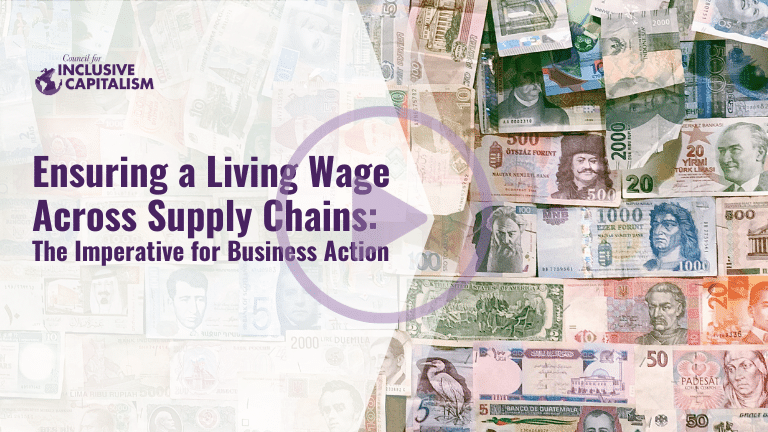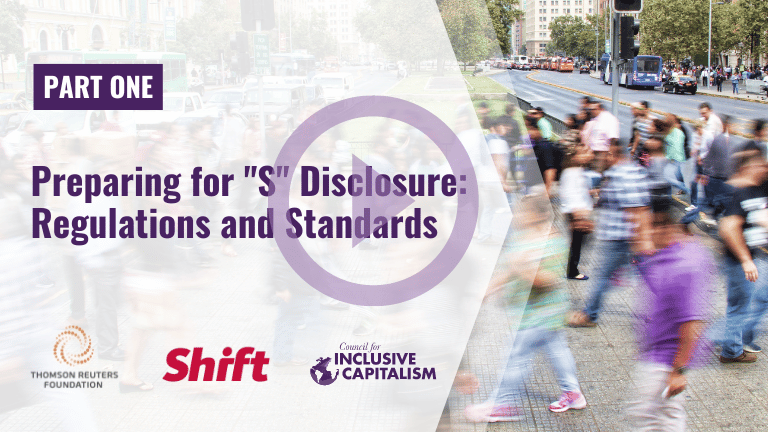Preparing for ‘S’ Disclosure: Best Practices – Thomson Reuters Foundation, Shift

On September 15, the Council for Inclusive Capitalism partnered with Thomson Reuters Foundation and Shift to host the second part of the “Preparing for ‘S’ Disclosure” webinar series. This webinar explored best practices for corporate “S” disclosure and evolving investor evaluation of companies’ social performance.
Key Takeaways:
- Social indicators are not less financially material than environmental factors. The integration of ‘S’ is important to all investors not just impact investors. Qualitative approaches to disclosure are often enriched by data-driven elements, and vice-versa.
- We are in the early stages of companies, investors, and governments understanding what works in the ‘S’ space. Taking the “crawl to walk” approach, companies ought to try and iterate on what works in terms of measured outcomes.
- More companies and investors are seeking to evaluate how far a company’s commitments to address social impacts are embedded in its governance, strategy, and culture. There is also a growing movement towards indicators and metrics that show how companies contribute to problems and improve situations.
- Companies should share out their actions for others to learn from. Company reporting is critical. Experiences of civil society members and other stakeholders ought to be taken into consideration as due diligence as part of this reporting process to help improve and advance good outcomes across the ‘S’ disclosure space.
- To accelerate learning, further work is needed in de-siloing approaches on ‘S’ conduct. Further collaboration is also needed between the public sector stakeholders and the private sector stakeholders on actions for better outcomes and social goals to better evaluate what works and what does not work.



